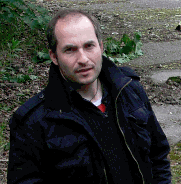|
|
|
|
|
|
|
News & Views item - April 2010 |
![]() German Research Foundation (DFG) has a Rethink on Quantity and Impact.
(April 30, 2010)
German Research Foundation (DFG) has a Rethink on Quantity and Impact.
(April 30, 2010)
Claus-Christian Carbon is current head of the Department of General Psychology and Methodology at the University of Bamberg, Germany. Under the heading: "Fundamental Change in German Research Policy" he has had published the following letter in the April 30 issue of Science.
Perhaps the Minister for Innovation, Industry, Science and Research might have someone in his department have a look at it:
 Until
recently, an essential indicator in the evaluation of grant applicants by the
Deutsche Forschungsgemeinschaft (DFG), Germany's leading research foundation,
was the quantity and impact of the applicant's publications. This policy fit the
increasing attention paid to Web of Science–listed publications, impact factors,
and the h-index for competitive funding in science (1, 2). The rationale is
clear: On the basis of such variables, it is possible to compare performances
and to provide a foundation for decisions.
Until
recently, an essential indicator in the evaluation of grant applicants by the
Deutsche Forschungsgemeinschaft (DFG), Germany's leading research foundation,
was the quantity and impact of the applicant's publications. This policy fit the
increasing attention paid to Web of Science–listed publications, impact factors,
and the h-index for competitive funding in science (1, 2). The rationale is
clear: On the basis of such variables, it is possible to compare performances
and to provide a foundation for decisions.
However, the process overlooks one fundamental point: the content of research.
The essence of the "Einsteins" of science history was surely not the quantity of their publications, but the quality of their research ideas. Ideas are hard to quantify—they are even harder to compare. But wise peer-referees can qualify them.
The DFG has recently taken an important step toward valuing content. The organization has changed its policy for evaluating research grants by restricting references in forthcoming applications to five of the authors' most important publications and limiting reports of finished projects to the two most important publications per year (3). This helps reviewers appreciate the quality and the innovativeness of research. Of course, not every paper can introduce a Theory of Relativity. But we must focus on quality rather than quantity if we are to advance the world's intellectual capital.
Claus-Christian Carbon